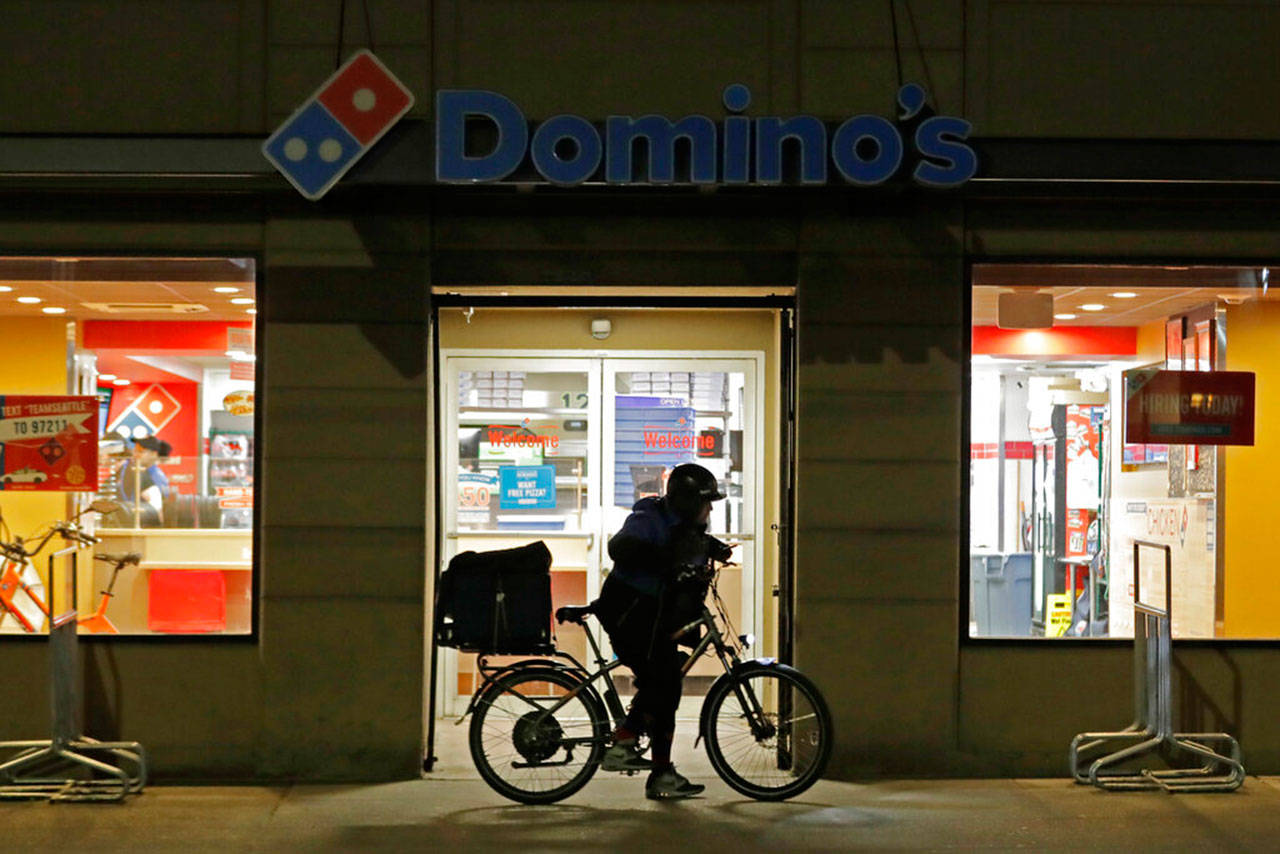By The Herald Editorial Board
Here’s one way of telling that many are taking seriously the calls for social distancing to limit the spread of the coronavirus that causes Covid-19: The Snohomish Health District has been flooded with phone calls and messages about businesses — restaurants and gyms, in particular — that aren’t necessarily abiding by the governor’s order earlier this week to close up shop until at least the end of the month.
To be clear, restaurants, coffee shops and others can continue to offer food and drink for take-out or delivery, but on-site dining has been prohibited, as has the usual operation of businesses that cater to groups of people, such as gyms, bowling alleys, theaters and others.
The community vigilance is appreciated, said Heather Thomas, communications director for the Snohomish Health District, but the department’s staff is spread thinly at the moment addressing other public health priorities and — with some 3,000 food establishments in the county — can’t go chasing down reports of violations.
You’ve been deputized, as it were; if you see something, say something, but say it to the business’ management, respectfully and calmly reminding them of the need to limit person-to-person contact in the community, Thomas said.
“By and large,” she said, “people are starting to pay attention. But there are pockets of people who complain and think this is all some type of panic or hysteria created by the government or media. We always have those. But we keep trying to push the same message and be consistent.”
There are indications that many still aren’t convinced of the seriousness of the Covid-19 outbreak. And the political divisions in our country may be contributing to a lack of concern among some regarding the virus and the need to take steps — ones that require real sacrifice — to confront it and slow its transmission.
An example: One candidate for governor, running as a Republican, in a plea for campaign donations has criticized the steps taken by Gov. Jay Inslee and public health officials, calling the social-distancing measures an attack on the First Amendment right of freedom of assembly. It’s an overwrought claim, and a dangerous one.
And a recent NPR/PBS NewsHour/Marist poll found a stark difference in opinion among Democrats and Republicans regarding the seriousness of the crisis and the response to it. Alarmingly, it also found that the number of Americans who consider the outbreak a “real threat” has actually dropped 10 percentage points to about 56 percent of respondents, even as the dire nature of the outbreak, with every death, should now be undeniably evident.
Among the poll’s findings, only 40 percent of those identifying as Republicans consider the virus a real threat and 54 percent consider the response by federal, state and local government “overblown.” Among Democrats, 76 percent saw the outbreak as a real threat, and only 20 percent saw the response as overblown. The poll, NPR noted, was conducted on Friday and Saturday, the same day that President Trump declared a national emergency and prior to the announcement Tuesday of stricter nationwide guidelines on social distancing.
A couple of factors beyond politics could be at play regarding that divide in opinion.
Widespread testing for the disease continues to lag, meaning there isn’t a clear picture regarding the outbreak’s spread, though that may be changing in Washington state where there are now more than 1,000 confirmed cases of Covid-19 and the death toll in the state is at 54 people.
The second factor are the particulars of the disease itself. While Covid-19 poses a serious threat to those over 65 and those with compromised immune systems or other chronic medical conditions such as heart disease, diabetes and lung disease, its symptoms in younger adults and children — a dry cough, fever and shortness of breath — can be mild and even hard to notice. Its long incubation period, often without symptoms, has added to its stealth, a stealth that has encouraged some to doubt the threat.
But the threat is real and will increase if social distancing efforts are ignored or pulled too early. A report by British researchers estimates that without measures to close schools and businesses and for as many as possible to work from home, up to 2.2 million people in the United States could die, about 1 in every 150 Americans.
By now most have seen the graphs that encourage us to “flatten the curve,” with two bell curves that show the demand placed on the nation’s health care resources during the coronavirus outbreak. One curve — what happens if social-distancing measures are not taken to slow the disease’s transmission — shows demand outpacing the health care system’s ability to meet it. The other shows a flatter curve, one that — with the right steps — shows demand for care not exceeding the system’s capacity.
Overwhelmed hospitals and other health care facilities could result in a lack of treatment — and even death — for those who need that care, whether they have Covid-19 or not.
Here’s an illustration of what can happen when demand overruns a system’s ability to provide resources, an example with which every American is now familiar: Take a look at the empty shelves in your grocery store; that’s uncontrolled demand overwhelming supply.
Partisanship is at the bedrock of American political life, but it shouldn’t keep us from treating a public health threat with due respect and from protecting the safety and lives of ourselves, our families and our community.
Talk to us
> Give us your news tips.
> Send us a letter to the editor.
> More Herald contact information.

























